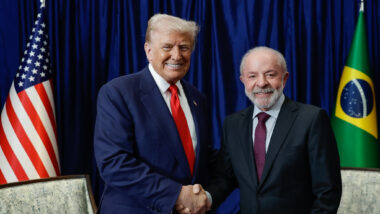
Ouça este conteúdo
The Rule of Law is the formal aspect of the conditions of democracy. It is the materialization, in rules of common sense decanted over an extended period of history, of the perception that man will always be an imperfect being, who, though capable of resilience and excellence, is also inclined to selfishness, self-promotion and ambition. The reality that those who have power tend to abuse it, although not absolute, corresponds to the drama of this ambivalence of the human being, which would be foolish to disregard.
The construction of the idea of the Rule of Law has its origin in the liberalism of the first hour, in those moments in which it became clear that it was fundamental to limit the power of the state to safeguard its citizens. The imperative need for a constitution, the separation of powers, the rule of law (subtracting the arbitrariness of personalism), the affirmation of rights and guarantees of citizens as a limit to the action of the state and of citizens against others, are all modern achievements and are precisely the core of what has been called the Rule of Law.
"The notion of Rule of Law is the materialization of practical political wisdom"
But if today we clearly have this, it has not always been so. It has been a long journey to the consolidation of this logic. In practice and in ancient and medieval theoretical preoccupation, what prevailed was the concern to discuss and identify what a prudent government, focused on the common good would be. It lacked the practicality of institutionalizing mechanisms that would guarantee the minimum of security against the possible abuses of the rulers who did not follow or did not want to follow the good practice that those discussions indicated. It is, therefore, undeniably a great achievement, and a practical achievement.
The measures that make up what is now understood as the Rule of Law (and the consensus on the set of measures is not clear) can, however, be confused with a certain vision or ideology of the state - specifically, with the radical liberal ideology. In fact, one can think that the Rule of Law is nothing more than the materialization of the thesis of a minimalist state. But this need not necessarily be so. The notion of Rule of Law is the materialization of practical political wisdom and institutionalizes a framework within which a democratic society can be built with a broader view of the role of the state. If we understand democracy as the way of being of a particular state, the logical conclusion is that the rule of law is a component, a pillar of democracy. Without the Rule of Law, democracy is not possible, regardless of the purposes attributed to the state, be it minimalist, interventionist, subsidiary or any other configuration.
But it would be a gross error to say that it is possible, in theory, to establish institutions or mechanisms that, by themselves, guarantee good government. Good institutions and wise measures of limitation, control and balance of power greatly facilitate its healthy performance, but they are never enough to avoid all possible abuses or ensure the proper direction of a social whole in the long run. Achieving this goal requires a democratic culture that is not limited to strong institutions, but includes behaviors that reflect strong civic values.



